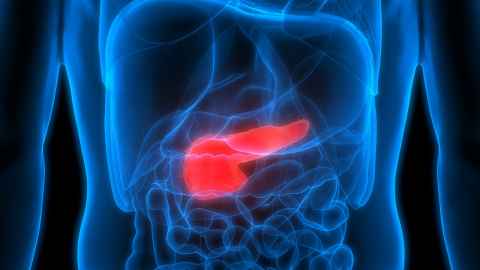Quality measures in pancreatic cancer care
2 November 2020
November is pancreatic cancer awareness month and Professor John Windsor says there needs to be standardisation of care and treatment for the disease.

This time last year Professor John Windsor was feeling optimistic about the improvements in treatment for the aggressive disease that is pancreatic cancer.
He wrote a column to mark Pancreatic Cancer Awareness Month in November highlighting the fact that effective new chemotherapy drug combinations, and a move away from a ‘surgery first’ thinking, are having a positive impact on pancreatic cancer outcomes.
Let’s not sugar-coat it. Pancreatic cancer is a notoriously hard-to-beat disease, largely because it can go undetected for so long. By the time a patient presents with symptoms, it’s often too late. But genomics research – showing different gene mutations related to pancreatic cancer – has detected sub-groups that have better outcomes when targeted with more effective chemotherapy drugs delivered as a first step in treatment.
John is Professor of Surgery in the Faculty of Medical and Health Sciences and director of the Surgical and Translational Research (STaR) Centre. A pancreatobiliary and gastro-oesophageal surgeon, he established the first HBP/Upper GI Unit in New Zealand. He is now national chair of the HBP/Upper GI tumour stream, and pancreatic cancer has been prioritised because of its low (five percent) overall survival rate.
“So while I spoke positively last year, there is room to improve the care of pancreatic cancer in New Zealand,” says John.
“Te Aho o Te Kahu, the Cancer Control Agency (CCA) was launched at the end of 2019 by the Government, and that’s one of the agency’s key focuses.”

One of the ways to improve cancer care is to ensure that no regions are lagging behind. We also need to focus on Māori to ensure there’s equity in access and care.
John is leading the project with Te Aho focused on pancreatic cancer, to encourage improved and equitable outcomes.
“This project is about defining Quality Performance Indicators (QPIs). We’re working out the key things to measure in terms of the patient experience and patient outcomes in the management of pancreatic cancer in New Zealand.”
The QPI measures have already been trialled to good effect with colorectal cancer. In a pilot study, the district health boards reported on the colorectal cancer QPIs revealing a number of issues needing investigation.
“What we learned with the QPIs for colorectal cancer is that there’s variation between the district health boards. One of the ways to improve cancer care is to ensure that no regions are lagging behind. There needs to be standardisation of care and treatment – that’s critically important. It’s as important as finding a new chemotherapy drug or developing a new operation.”
John says setting standards in cancer care, against which treatment providers are measured, is key to ensuring all patients receive the best treatment available.
“No matter who or where they are in the country, patients need to have confidence that their care is being measured in a way that allows for continuous improvement. We also need to focus on Māori to ensure there’s equity in access and care. The QPIs will alert us to that.”
There will now be a wide consultation to feed into the pancreatic cancer QPI measures.
“That will include patients, relatives, non-government organisations, dietitians, palliative care staff, as well nurses and medical specialists.”
The QPI project has highlighted the incomplete and fragmented nature of our data collection systems and the need for significant investment in this area.
“Clinicians have been telling the Ministry of Health this for some time. We need national data sets so we can see where we are deficient and to implement improvements for the future.”
Websites for more information:
Surgical and Translational Research (STaR) Centre starcentre.ac.nz
Cancer Control Agency
This item first appear in UniNews November 2020.